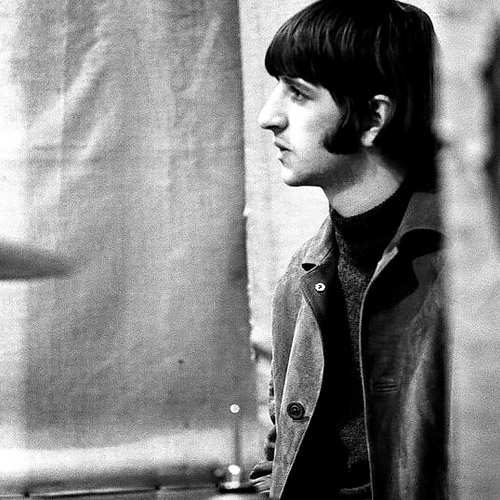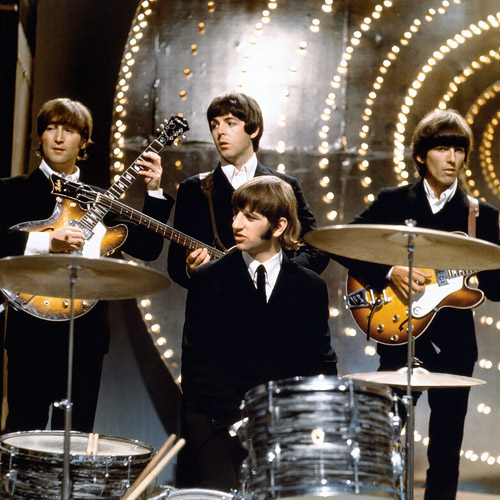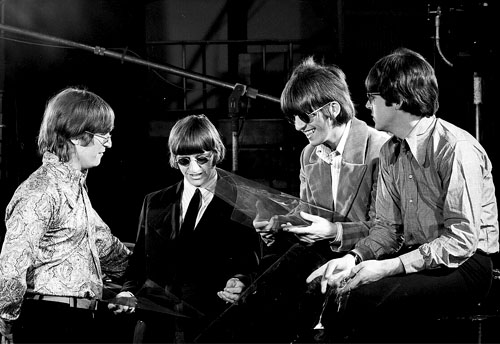REVOLVER Improved & Expanded
On April 6, 1966, The Beatles gathered in Studio Three at EMI Studios (now called Abbey Road Studios) for their first REVOLVER recording session. With their producer George Martin flanked by recording engineer Geoff Emerick and technical engineer Ken Townsend, they went in blazing, starting with ‘Tomorrow Never Knows’. John’s ethereal vocals (fed from his mic through a rotating Leslie speaker), innovative tape loops - including Paul saying ‘ah, ah, ah, ah’, which when sped up produced a sound similar to a seagull’s screech - converge with Ringo’s thunderous drum pattern, George’s tamboura drone, and a backwards guitar solo. ‘Tomorrow Never Knows’ propelled The Beatles and popular music into exciting new terrain. In an interview before REVOLVER’S August 5, 1966 release, Paul explained to NME, “We did it because I, for one, am sick of doing sounds that people can claim to have heard before.” REVOLVER’S Special Edition also features The Beatles’ first take of ‘Tomorrow Never Knows’ from the April 6 session and a mono mix that was issued on a small number of records before the LP was recut with the correct version.
The next day, The Beatles returned to Studio Three, completed most of their ‘Tomorrow Never Knows’ recording, and started work on the first version of ‘Got To Get You Into My Life’. As heard on the Special Edition’s Sessions One, this recording sounds very different from the released track. REVOLVER’S Special Edition also spotlights two more stages of the finished track’s evolution: an unreleased mono mix and a special mix highlighting the overdubs of three trumpets and two tenor saxophones.
One of George’s most important songwriting influences is heard in ‘Love You To’. The previous year, his deepening interest in Indian music and learning how to play sitar had brought him together with Ravi Shankar, who became his close friend and occasional musical collaborator. The Beatles began recording ‘Love You To’ in Studio Two on April 11, the third anniversary of the UK release of “From Me To You”. Taken with the whole of REVOLVER, the short three-year span between these songs illuminates the band’s astonishing creative progression.
“It was one of the first tunes I wrote for sitar,” George later recalled. “This was the first song where I consciously tried to use the sitar and tabla on the basic track.” With George on sitar and vocals, Paul on tamboura and vocal harmony, and university student Anil Bhagwat on tabla, the song’s intricate arrangement began to take shape over several takes. Overdubs included an additional harmony vocal by Paul, omitted from the released version but now faded up in a mix of Take 7. REVOLVER’S Special Edition also features Take 1 and a previously undocumented and only recently discovered rehearsal for the song with George playing sitar and Paul on tamboura.
Between April 13 and 16 in Studios Two and Three, The Beatles recorded their chart-topping ‘Paperback Writer’ single (with layered harmonies, riffing guitars, and Paul’s booming bass lines) and its B-side ‘Rain’ (achieved with tape machines slowed down for the recording and mixing processes). Prior to the single’s release on June 10 (May 30 in the U.S.), The Beatles spent a couple of days away from recording to shoot several promotional films for both songs with director Michael Lindsay-Hogg, who would later direct the Let It Be film. In addition to the songs’ new stereo mixes and original mono mixes, REVOLVER’S Special Edition features ‘Paperback Writer’ Takes 1 and 2 - Backing track and two versions of ‘Rain’ Take 5: one at the actual speed The Beatles played it and the other, a slowed down evolutionary mix used to create the master tape.
The album’s opening track, ‘Taxman’, was recorded across three Studio Two sessions in April and May. One of three songs on the album by George, in ‘Taxman’ he expresses his frustration with the UK’s ‘super-rich’ tax rate at the time (90%), with a vocal wink to the “Batman” TV theme song. In a 12-hour session on April 20, The Beatles recorded and mixed the first version of ‘And Your Bird Can Sing’ (for this song, the Special Edition features two Version One/Take 2 recordings and Version Two’s Take 5), then began recording ‘Taxman’. They returned to the song the next day, laying down George’s foundational guitar, Paul’s bass and his dynamic, raga-style guitar solo, and Ringo’s drums and cowbell. REVOLVER’S Special Edition also features Take 11, with falsetto backing vocals by John and Paul with different words from the released version.
|
|

|
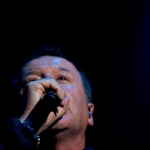
Simple Minds |
LATEST GALLERY IMAGES

Crime Scenes 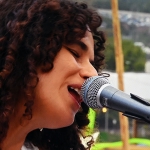
Good Neighbours |
|
|


